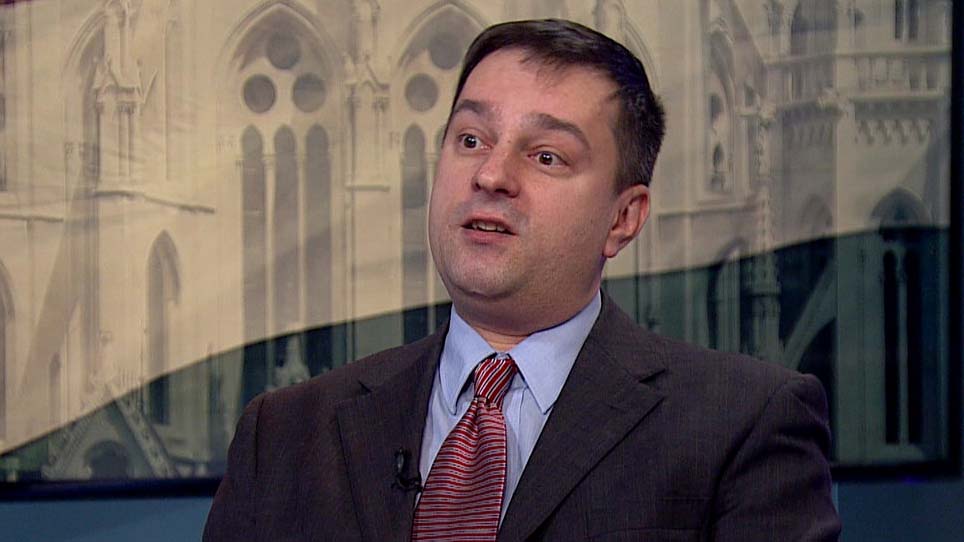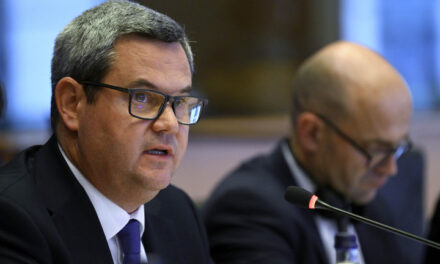The idea of the Europe Project (before the departure of the British: Project 28) - a large-scale, representative survey conducted in the countries of the Union and among the countries intending to join - was born in 2015. The first research was conducted in the first half of 2016 under the leadership of the Századvég Foundation with the aim of mapping the opinions of European citizens on the issues most affecting the future of the union. The public opinion survey covering the twenty-eight member states of the European Union, in a unique way, in the widest range to date, asked a thousand randomly selected adults per country, i.e. a total of twenty-eight thousand. Among the most important goals of the investigation was to learn about society's sense of the economy, the public's attitude towards the performance of the European Union, the migration crisis and the growing terrorism.
Századvég has been conducting research on behalf of the Hungarian government for the sixth year now, which continues to reflect on the topics that most determine European political and social public discourse. The 2021 survey - in line with the new challenges affecting Europe - was expanded to include the coronavirus epidemic, climate change, energy supply and family policy. In addition to the member states of the European Union, the research covered the United Kingdom, Norway and Switzerland, so it was compiled by interviewing a total of thirty thousand randomly selected adults.
Who does Brussels represent?
Author: Zoltán Kiszelly, director of the Center for Political Analysis of Századvég
The research looked for the answer to how much the respondents feel that Brussels represents their opinion. The results point in one direction: 51 percent of the citizens of the twenty-seven member states and the United Kingdom, 50 percent of the respondents from the former socialist countries, and 48 percent of the citizens of the Visegrad Four feel that they or their opinions are little or not at all represented in the political decision-making process of the EU leadership. Brussels is synonymous with EU decision-making: the European Commission initiates EU legislation, which is jointly adopted by the European Parliament and the Council of the European Union, which consists of delegates from the governments of the member states. The process is opaque to the average European, but the thirty thousand Eurocrats and the same number of lobbyists know themselves well in the legal maze. In light of these, it is no wonder that only a small part of the respondents (38-40 percent) feel that they have meaningful representation in Brussels. The result is not really different in the western and eastern half of the union. The citizens of the countries that joined in 2004 live better now compared to the decades of communism, which is also thanks to EU membership. However, the initial enthusiasm was overshadowed by more and more ideology-driven decisions familiar from the pre-1989 period.
The melting of nations in a large union, the convulsive adherence to the dogmas of gender and climate ideology, as well as the economic policy that passes through market mechanisms, go against the expectations of the average European in the same way as the admission of tens and hundreds of thousands of people with foreign cultures, who not only do not enrich European societies, rather, they live as their dependents for generations. Central and Eastern Europeans don't understand why they force things that don't work, like migration, and why they want to screw up things that work well, like nuclear power supply.
In Western Europe, the high standard of living of more and more social groups has been deteriorating for decades. They used to blame the "Polish plumbers" and the expansion to the east for the slow decline, but now they had to realize that globalization is mostly responsible for this. Globalization, the beneficiaries of which are multi-companies and speculators, their lobbyists have more influence on the legislative process in Brussels than the Europeans.
Brussels consults its citizens in minor matters, but as the example of changing the clocks shows, it ultimately left the abolition, supported by 84 percent of Europeans, to the member states, i.e. let it go. We Hungarians, on the other hand, are also asked about important things, such as migration or the planned climate tax. Moreover, the results of the national consultations are integrated into the government's policy and benefit all Hungarians. We examine Brussels through this lens, and evaluate it accordingly.
You can read Mandiner's article in its entirety
Image: Hirado.hu













